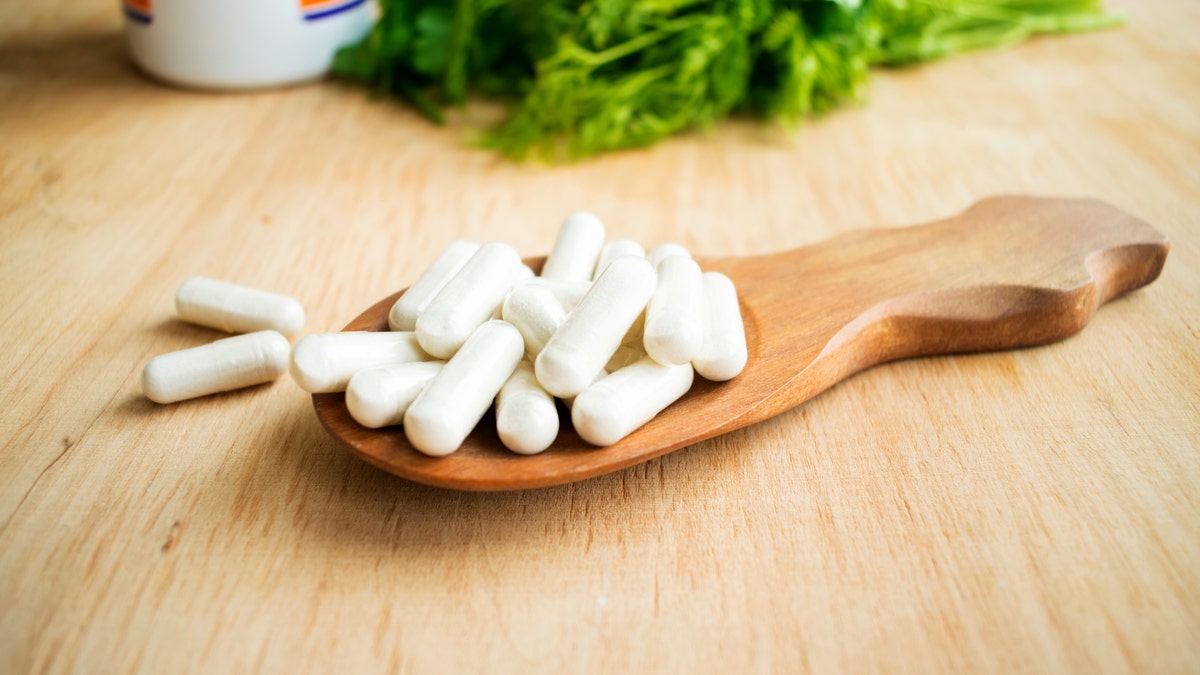Fox News Flash top headlines for June 8
Fox News Flash top headlines are here. Check out what's clicking on Foxnews.com.
Some patients who have died or have been hospitalized as a result of the novel coronavirus have reportedly been found to be deficient in vitamin K, according to scientists in the Netherlands who hope to further explore if taking a vitamin K supplement could help prevent severe COVID-19 infection.
Researchers studying coronavirus patients at the Canisius Wilhelmina Hospital in Nijmegen have reportedly found “a link between [vitamin K] deficiency and the worst coronavirus outcomes,” the Guardian first reported.
VITAMIN D AND THE CORONAVIRUS PANDEMIC: SHOULD YOU TAKE IT?
The study, which was done in collaboration with the Cardiovascular Research Institute Maastricht in the Netherlands and was submitted for peer review last week, studied 134 coronavirus patients who were hospitalized between March 12 and April 11. The patients were compared to a control group of 184 patients who were not infected with COVID-19.
Many of the patients who died or were hospitalized were reportedly found to be deficient in vitamin K, a vitamin that’s found in leafy greens such as kale and spinach and “makes proteins for healthy bones and normal blood clotting,” per Live Science.
More specifically, the vitamin’s ability to regulate clotting is what the researchers hope could help protect against severe COVID-19 outcomes, as the novel disease has been known to cause dangerous and potentially deadly blood clots in some patients.
“We are in a terrible, horrible situation in the world. We do have an intervention which does not have any side effects, even less than a placebo. There is one major exception: people on anti-clotting medication. It is completely safe in other people,” Dr. Rob Janssen, who led the research, told the Guardian.
Those who use vitamin K antagonists as blood thinners should not use a vitamin K supplement, he warned, as the supplement can counteract these blood thinners.

Vitamin K can be found in leafy greens, such as kale and spinach. (iStock)
For most everyone else, however, “My advice would be to take those vitamin K supplements," added Janssen. "Even if it does not help against severe COVID-19, it is good for your blood vessels, bones, and probably also for the lungs."
Given the results of the study, the Dutch researchers are now seeking funding for a clinical trial, per the Guardian.
But Dr. John Whyte, the chief medical officer for the health care website WebMD, warned against “focusing on any one vitamin to prevent coronavirus.”
“The interest in vitamin K has been a result of the observation that blood clots have occurred in seriously ill patients with COVID-19 — even when they are on blood thinners," Whyte, who was not involved in the study, said. "The studies on vitamin K have been done on hospitalized patients. I would not compare these findings to people who do not have COVID-19. I don't recommend focusing on any one vitamin to prevent coronavirus."
“The studies on vitamin K have been done on hospitalized patients. I would not compare these findings to people who do not have COVID-19. I don't recommend focusing on any one vitamin to prevent coronavirus.”
Rather, said Whyte, focus on healthy eating, “which includes serving of fruits and vegetables every day.”
“We have learned over time that you can't treat diseases through one aspect of your diet. You have to focus on everything you eat," he said. “You're much better off practicing physical distancing, hand washing, and wearing a facial covering to prevent COVID-19 than taking vitamin K.”
VITAMIN D LEVELS MAY IMPACT COVID-19 MORTALITY RATES, STUDY CLAIMS
Since the pandemic began, researchers have questioned if certain vitamins may help to prevent severe COVID-19 infections or help in the recovery of those who have fallen victim to the disease. One study, for instance, found that those deficient in vitamin D may have poorer outcomes if infected with the novel virus.
But to date, “there are no clinical studies that show the effectiveness of vitamin D or any other supplements or vitamins to treat coronavirus,” Whyte previously told Fox News.









































